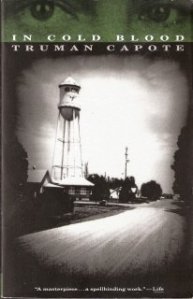In 2000, Douglas Preston fulfilled a dream to move his family to Italy. Then he discovered that the olive grove in front of their 14th century farmhouse had been the scene of the most infamous double-murders in Italian history, committed by a serial killer known as the Monster of Florence. Preston, intrigued, meets Italian investigative journalist Mario Spezi to learn more. This is the true story of their search for–and identification of–the man they believe committed the crimes, and their chilling interview with him. And then, in a strange twist of fate, Preston and Spezi themselves become targets of the police investigation. Preston has his phone tapped, is interrogated, and told to leave the country. Spezi fares worse: he is thrown into Italy’s grim Capanne prison, accused of being the Monster of Florence himself. Like one of Preston’s thrillers, The Monster Of Florence, tells a remarkable and harrowing story involving murder, mutilation, and suicide-and at the center of it, Preston and Spezi, caught in a bizarre prosecutorial vendetta.
Review:
There are frequently days when the crappiness of the world is too awful to even contemplate and I struggle not to simply fall to the ground, wrap my head in my hands, and give up. But after reading The Monster of Florence, no not anymore, because I have a talisman, a mantra of sorts, to repeat and cling to in these moments of darkness. I have a reminder that even if things are bad, they are not and could never be as uncomprehendingly inefficient, vile, pathetic, medieval, and, yes, even evil, as the Italian justice system. For the rest of my life, if I read an article about the incompetency of an American judge or watch a documentary about the failing criminal system, I can finish and soothe myself, “Well, at least it’s not Italy.”
How lovely it is for others to fail so that we can reassure ourselves that we are not the worst. This nonfiction story traces the beginnings of “Il mostro di Firenze,” the titular Monster of Florence, a serial killer worthy of the fascination for those who “love” (this is far from the right word, but I’m struggling to find better—evidence of an unhealthy fascination that should be discarded despite our undying interest?) serial killers. His trail of corpses spans decades in the picturesque Florentine hills. He kills couples in the midst of sex, shooting them with his infamous Beretta, and then cuts away pieces of the woman’s genitals to keep. His reign of terror was so great that by the end, he only victimized foreigners since every young Italian couple knew not to venture into the hills, no matter how much they wanted to find a secluded place to have sex.
And that’s only the killer. He’s far from the most interesting part of this tale. The plodding and misguided police investigation fingers numerous suspects but apparently never the right one. It becomes a humiliation for the authorities, which is where things proceed to become even more interesting. Scapegoat satanic cults are summoned from nowhere, bodies of innocents-now-presumed-guilty are exhumed years later and claimed to have been “replaced,” false evidence is planted in innocuous gardens, and journalists attempting to solve the case are arrested as accomplices.
The very writers of this book—an American journalist partnered with an Italian—are considered criminals for daring to question the extremely suspect conclusions of Italian prosecutors more eager to close the case than to find the right suspect. At one point a criminal profile of “Il Mostro” is assembled by the greatest team of FBI profilers on the planet only to be hidden away because it did not correspond to the suspect the Italian authorities wanted to convict. The judicial system is so profoundly incompetent that you get verdicts like this,“Acquitted; for the reason that the allegation is nonexistent.” In Italy the authorities can run free and fabricate charges, ruining dozens of lives in the process, all in the name of “justice” which for them is nothing more than saving or building their own reputations.
If you are fascinated by incompetency, you must read this book. If you watched the Amanda Knox case, aghast at the supposed “evidence,” read this book (the prosecutor in her case is also a villain here, coming up with crackpot theories about the Monster and then creating the evidence to support them after the fact.) Unfortunately, it’s not the best written book—Spezi and Preston wrote it half in Italian, half in English and then translated the other half for their respective audiences. It shows: the writing is often clunky, particularly the dialogue which reads like an airport thriller novel.
The Monster of Florence is about ego, not only the ego required to kill but also the ego to decide who is a killer. But it’s also about our egos, our ego as readers of true crime, that same ego that makes us slow down at a roadside accident and wonder, “What happened here?” It is egotistical to assume that we can unmask, that we even deserve to unmask, the identity of an unknown and notorious killer. Is truth feasible when so many people desperate to find it are running around looking for it? It’s folly, and it takes a system as disastrous as Italy’s to show it.


